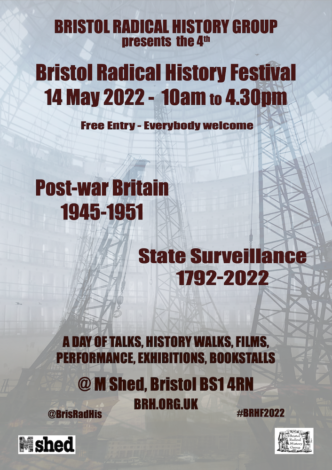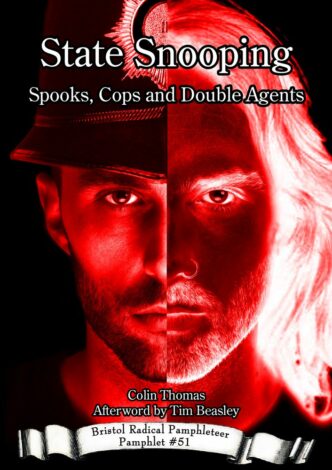Aled Eirug author of The Opposition to the Great War in Wales 1914-1918 (UWP, 2018) looks at the activity of intelligence agencies in South Wales during World War One, and the blacklisting of activists within the peace and labour movements.
In the 1550s Elizabeth I claimed that she had “no desire to open windows into men’s souls” while seeking to do just that. This pamphlet traces a near 500 year history of British governments snooping into the lives of its citizens. From the anti-Catholic paranoia of the sixteenth century to the effect of the radical ideas underlying the French Revolution of the eighteenth, the state increasingly expanded its surveillance activities. Industrialisation in the nineteenth century gave birth to mass […]
How did Bristolians respond to the democratic ideas unleashed by the French Revolution? This talk rejects the conventional view that the city’s labouring classes were uninterested in progressive politics and argues on the contrary that the relatively low profile of radical organisations reflects not indifference but the determination of the local authorities to keep them under surveillance and obstruct them. From the founding of the Constitutional Society in 1792 to the mass outdoor meetings […]
The modern relationship between the British state and corporate surveillance dates back to a time of rapid industrial change between 1911 and 1921, when socialism and syndicalism formed a key part of public debate. To industrial workers these philosophies offered new ways of understanding industrial work, of organising protest, and of reorganising democracy. But to employers they threatened the smooth operation of industrial production and the free use of capital, while for the government they […]




